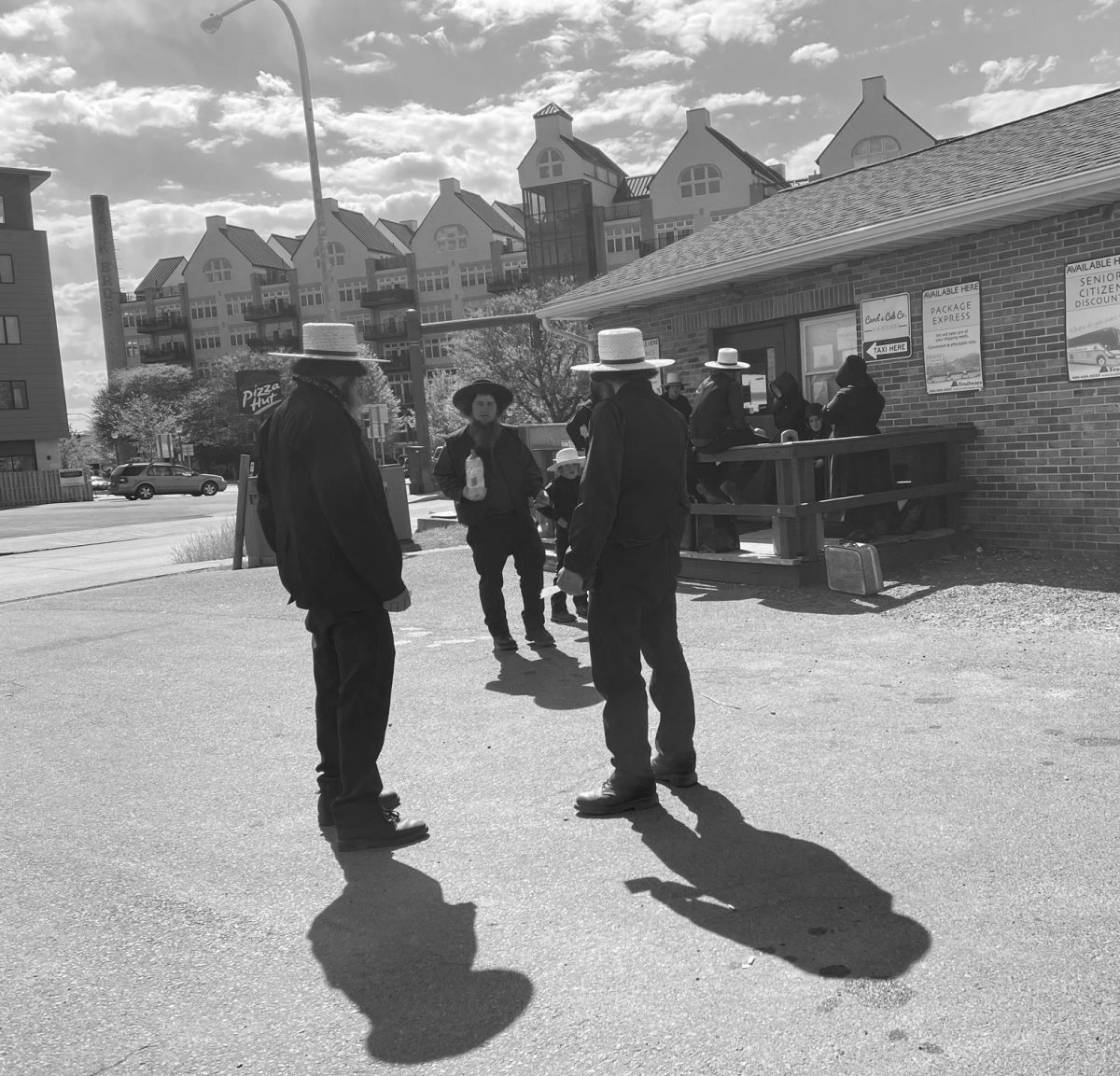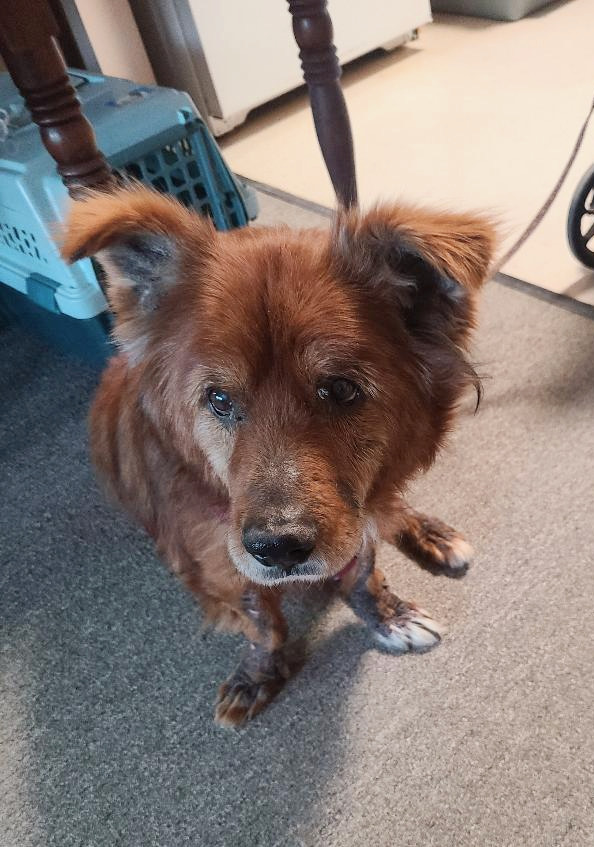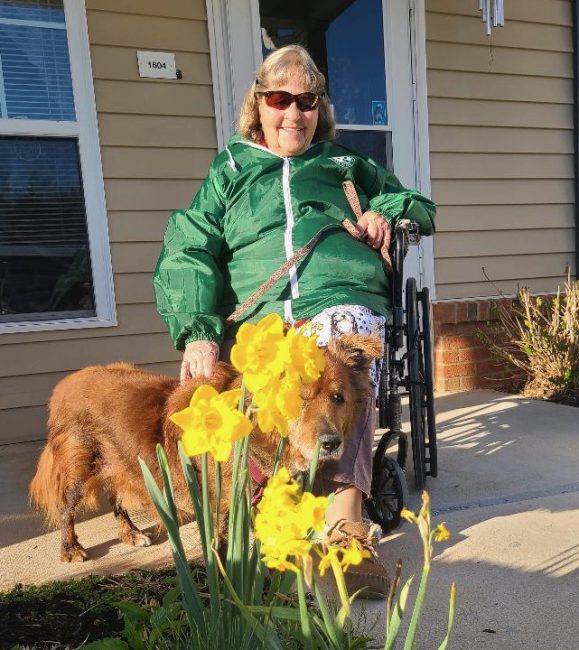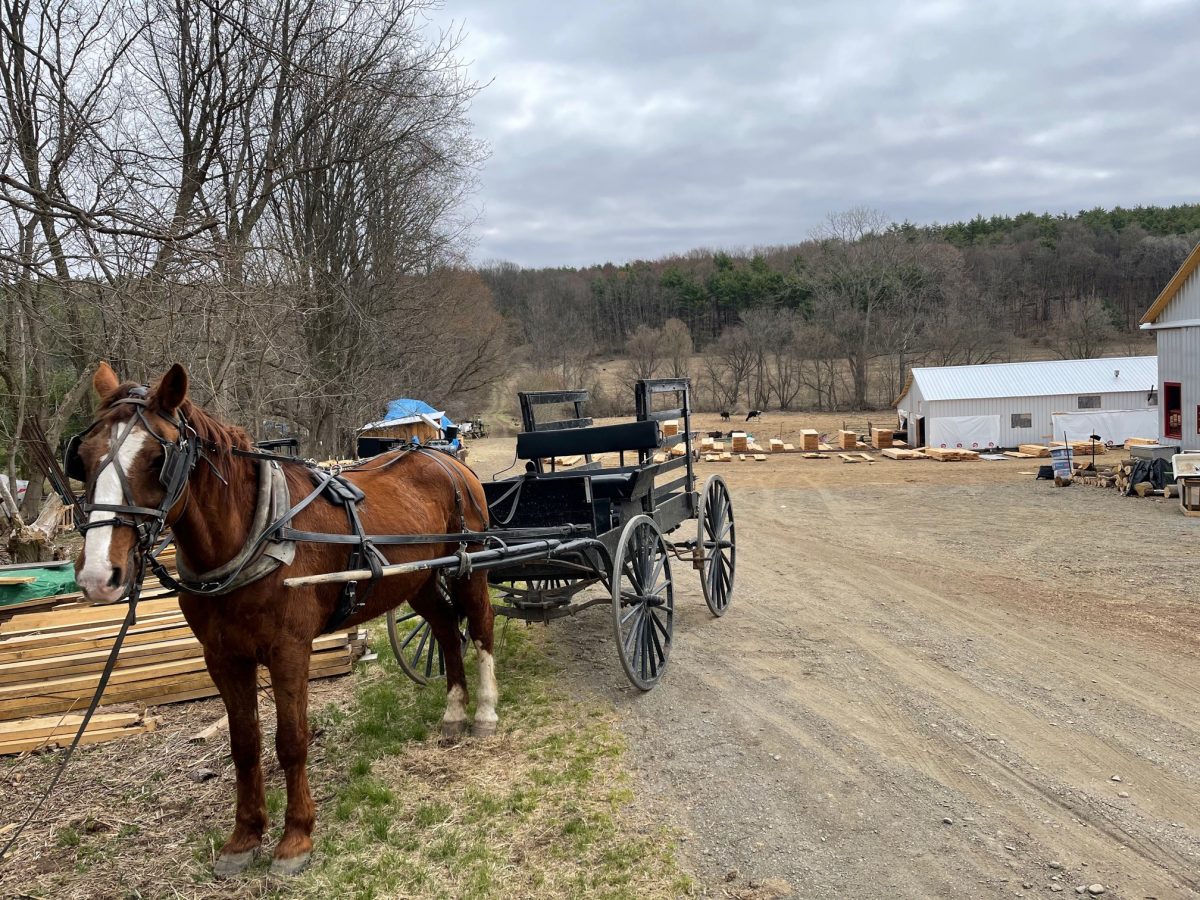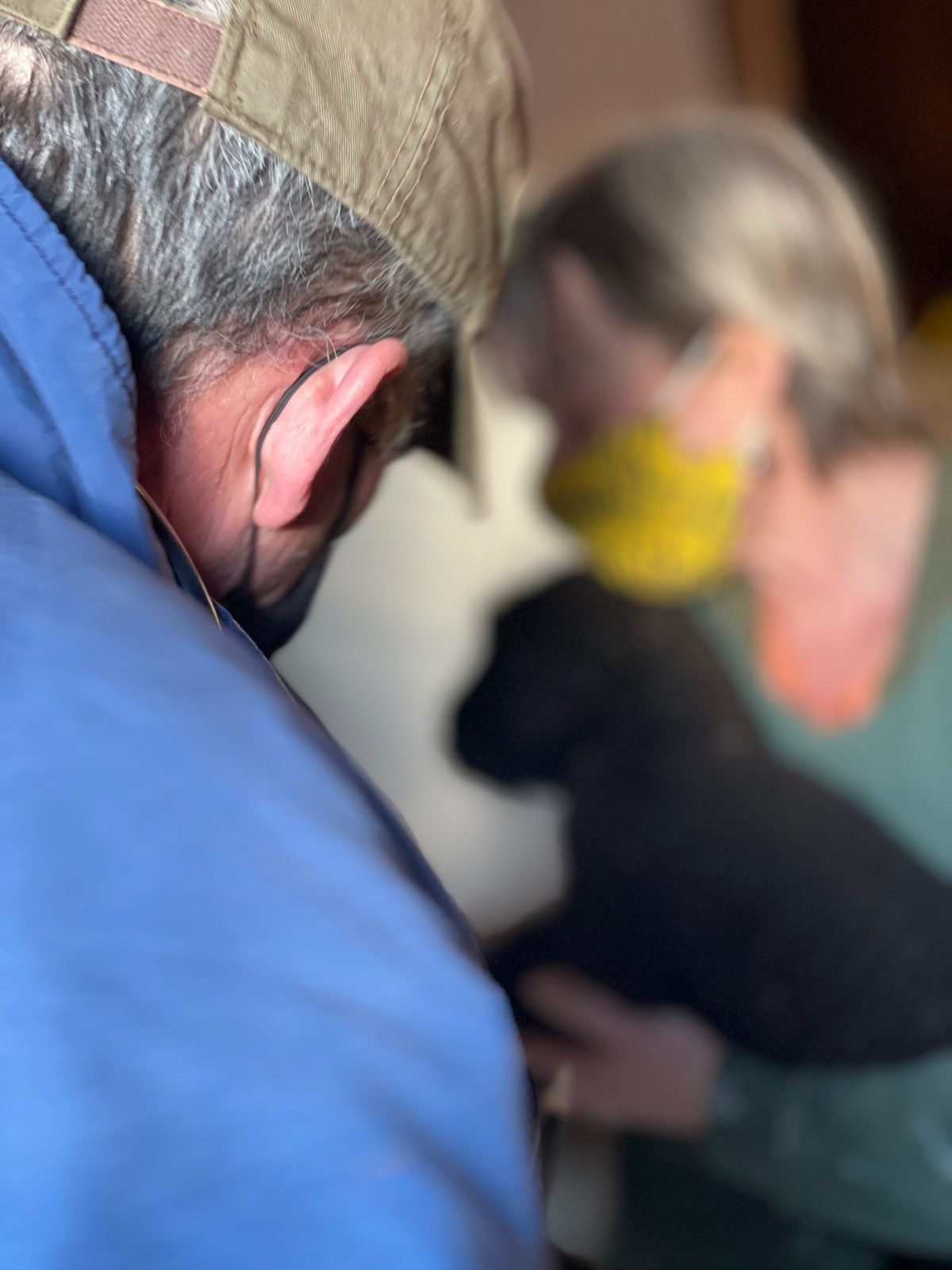Love Thy Neighbor refers to the Biblical phrase “thou shalt love thy neighbor as thyself” from the Book of Leviticus and the New Testament. The phrase refers to the ethic of reciprocity known as the Golden Rule.
“do unto others as you would have them do unto you” (Matthew 7:12)
_______
My writing about Moise and the Amish, who are now my neighbors, is, to me, a personal diary, a story of a friendship, and of a flawed man – me – who is finally learning at the age of 73 (almost 74) that he can heal from his own intolerance and impatience.
I grew up in the fading days of the Judeo-Christian ethos, largely abandoned today by the politicization of religion and by extremist activists on both sides.
The tragedy is that there are no longer many common values for us to build on or share. Anything goes. Remorse, like sincerity, is a joke. Lying without shame is the new virtue.
That sound you hear is the devil dancing.
Love Thy Neighbor and “Do Unto Others As You Would Have Them Do Unto You” were both Golden Rules of our major religions.
When I got to know my Amish neighbors, I was surprised to learn that these two foundations of religious, moral ethics are front and center in their value system, even as they have largely vanished from ours.
If Jesus Christ were ever to return to the earth, he would be more at home in the Amish Church than in any other I have seen, and he would be horrified at the awful greed and hypocrisy that has befallen much of Christianity.
I had no idea that some of the central values that rule Amish lives are the same that inspired mine, while many of them are alien, even offensive, to me.
I do love my neighbors, and they love all their other neighbors and me. That’s what they do.
I believe that the Golden Rule is the potential salvation of human life. If we really treated others the way we wish to be treated, we would find peace, prosperity, justice, even paradise.
Jesus had the right idea; too bad so many of his descendants have forgotten it. The Amish have not, they live it every day.
There is nothing in the Sermon On The Mount that I can’t accept, especially in comparison to the hateful dribble pouring continuously from religious and political leaders.
But I learned something else too since my neighbors have arrived.
Loving Thy Neighbor in 2021 is only popular if thy neighbor believes everything you believe and lives the same way you live.
Unfortunately, in America, the Golden Rule has descended into a hate-a-thon I am proud to not be a part of – more and more, we hate everyone different from us. Since many people in America are different from everyone else, there is often nothing but hate.
Loving thy neighbor is a controversial position to take now if thy neighbor happens to be Amish or doesn’t fully embrace the political winds of the moment.
As I read the preachings of Christ, there were few conditions on who we loved or on how we could treat other humans well and compassionately.
According to many of the messages I receive, you cannot love your neighbor if he is part of a Patriarchy, or if he treats his dog himself instead of going to a veterinarian or can’t support same-sex marriage within their church. (I take my animals to vets all the time, and I have always supported gay and trans rights and same-sex marriage.)
It seems they cannot be loved or treated as we would like to be treated ourselves; they must be ostracized, criticized, and kept at arm’s length. This is all new ground to me, but it’s coming into focus.
A lifelong person who has stayed outside the boundaries of conventional religion, I suddenly find myself a reluctant defender of the golden rules that promoted love, civility, and community. Those were the morals and ethics that guided us, even if we could never fully live up to them.
I don’t really find our new system of red and blue values better, or healthy, or leading us to a kindler or gentler way of life. They lead us to hate, lies and cruelty.
I will not be bullied into hating my neighbors; they have so much to teach me.
I am not a Christian, but I find it amazing that of all the messages I received, good and bad, the one that most resonates with me and inspires me and calls to me is the same one that governs Amish Life – Christ’s call to us to be generous, caring, humble and empathic.
To love our neighbors and to treat people the way we wish to be treated.
Not judging means not thinking I know best what is good for others. The Amish call it humility. One of my golden rules is that I don’t tell other people what to do. That stops judgment cold – there is no point to it.
I have come to see that the people who hate me because I love my neighbors are not moral; they are the amoral people who have lost their way.
They believe they are fighting for justice. Instead, they promote hate, not understanding, in me, in others.
People write me every day to tell me that I have literally lost my mind and perspective and judgment because I love Moise and my Amish neighbors, which they deride as a “bromance” or “naivety” or “betrayal” of moral values, an indictment of my enabling of sexism, animal and child abuse and fanaticism.
How could one love people who treat their animals differently or believe men should be in authority when it comes to family life?
I can, and I will, and I don’t believe that men should be the absolute rulers of anything for one second.
Morally, I’m not sure how to respond to all this; I’m still trying to work it out. But, it is a truly profound shift in culture, values, and our own long-held beliefs about God and morality.
And it is hurting us as a people.
The New Testament seems to have little hold on our modern society. The Judeo-Christian ethic has been destroyed by partisanship, the country’s division into two nations with completely different morals and ethics.
The Amish give priority to the writings of the New Testament, especially the teachings of Jesus.
Only New Testament texts are read aloud in the church service, and three-quarters of these come from the Gospels of Matthew, Mark, Luke, and John, which recount the life and teachings of Jesus.
The Amish especially revere and adhere to Jesus’s Sermon On The Mount, with its pledges to be meek, merciful, and pure of heart; to love and forgive enemies, and to put complete trust in God’s Providence.
Moise and his family have not undertaken to change me or educate me or preach to me in any way. They’ve never asked me what I think about faith. But, like me, they do not tell other people what to do or live or judge them for it.
They have changed me simply by existing, and letting me into their life, and by letting me know them, and teaching me to re-visit some of the truths and certainties that have guided much of my life.
They have changed me by accepting me in so a complete way and judging me in no way.
In the course of that experience, I have come to love this couple and their remarkable children. I refuse to see this as a bad thing, as many people insist on telling me it is.
The experience seemed profoundly important to me – it is a big deal to change and learning at my age.
However, I never give up on being a better human than I am, and I am forever surprised by how far I have to go, no matter how far I have gotten.
This journey is one of the most remarkable experiences of my life, and it really never occurred to me that it would become just another symbol and reflection of the hatred, intolerance, and rage that is engulfing our country.
I suppose I should be flattered. I’ve never been important enough to hate.
I’m just another thing to fight about; if I stopped loving my neighbors, these angry people would vanish into the fog.
I understand now that Donald Trump did not create this fury; he simply unlocked the door that kept much of it check. But, sooner or later, we would have to confront it as a people and in our personal lives.
He did us the great favor of waking us up.
I have pissed off many people by writing about the Amish and even more by daring to love some of them and respect many of the very different ways in which they live.
The idea of the aging Jewish/Quaker progressive becoming a dear friend of a 50-year-old elder in the Amish church’s deeply conservative Old Amish sect is nearly unbelievable.
Can we love our neighbor if he’s Amish? Jewish? Muslim? Asian? Mexican? Gay? Trans? Black?
If not, then what does religion mean at all?
I am told repeatedly that Moise’s wife and daughters must be coerced, oppressed, abused, and intimidated for them to remain in the grip of the Patriarchy. Still, I have found the opposite is true – they are mostly content, fulfilled, strong, freely spoken, and endearing.
It’s not a life I would want or want my daughter to live, but I admire these women and respect their choices. They are worth loving in every way.
I have repeatedly – every day – been told how the Amish abuse dogs, engage in unscrupulous puppy mills, work their horses to death and kill them without mercy.
This is not what I have found. It is simply not the reality of what I see.
The Amish, who do not believe in veterinary medicine, have cared for animals for hundreds of years and have their own ways of treating them mercifully and well. And differently than most of us.
That is not a crime and should not ever be.
If the Amish culture is a Patriarchy, then all of its women must be victims, and the fathers especially cannot be loved or befriended. That is how we look at the other worlds.
If an Amish father chooses to heal his wounded dog’s paw using his own tools and medicines, then he must be hated as an abuser of animals.
When I wrote how Moise saved a dog’s life by staunching her bleeding and cleansing the wound before she bled to death after a saw severed an artery and took a paw off, I was accused – as I am daily – of liking him too much.
Of having lost my judgment and my often remarked on skepticism.
I have become an enabler of evil. Perhaps if they treated me better, I could listen to them more gracefully.
The problem isn’t just that I’m right or wrong. The problem is that I love the wrong people and that this has caused me to lose my judgment and perspective, even my mind.
As Dorothy Marsh says, she just doesn’t get it.
So I will try once more to explain it. To me, it’s simple to grasp.
Dorothy Marsh wrote, “I do think that You are letting Romanticized view of the Amish Influence your thinking and writing. Think about what you wrote above –he took her to the barn and Cut Off her dangling paw. Would you condone that way of treating an injury from anyone other than the Relatively backward Amish? No anesthesia — he just hacked off her leg! If you think this is an acceptable treatment for an injury of that magnitude, you have let this Amish bromance get really out of hand in your own head. I just don’t get it.”
Let’s deconstruct this. And I sure have thought about it.
Dorothy knows nothing of how the dog Tina was treated or how much she was bleeding, or what tools or skills were brought to her full recovery in less than two days. Moise loves this dog, and I trust him to care for her well.
It’s not for me to tell him how to do that. I’m not his God or anybody else’s.
I see Tina almost daily; she is healthy, content, and much loved. To me, the injury was handled well and happily and with a good outcome. So I don’t need to make it mine.
I’m sorry, Dorothy, but I want to know more while you want to judge more.
What I am eager to learn from the Amish – and what I am beginning to learn – is how to engage respectfully, even lovingly, with people who are different from me and make different choices about life.
The point isn’t that I am wanting to do everything they do; the point is that I want to do very little of what they do but still chose to remain friends and neighbors.
I don’t judge them or tell them how to live or what I believe. I don’t assume that my way is superior to theirs, just because they believe in God and I don’t, or they are Patriarchal, or ride around buggies and wear funny clothes.
Dorothy – and many others -think the Amish have caused me to lose my mind. But I think I may be just beginning to find it. Thinking will do that for me.
Because of what I write, my thinking and writing must have been compromised. This is a new kind of social bigotry.
I can’t simply be wrong (or right.)
My Amish “bromance” is just the latest popular word to ridicule men who dare to show their emotions or, God forbid, speak of loving men. If they show a little emotion, they are ridiculed. I’m wise to it.
Would any woman choose or dare – to use such a demeaning term to describe a friendship with another woman?
The Golden Rules are fading from our consciousness; they are replaced with something that seems wanting and cold to me: the new sin-loving someone different.
It is easier to understand why the country is being torn apart. We are diverse people, many of us different from everyone else.
Without a common moral compass, someone is thus hating everyone or being hated by someone.
Jesus Christ and the Judeo-Christian ethic both promoted the idea that what we loved most was our differences. Now they are what we hate the most.
This is no big news to refugees, women, gay or trans people, or Mexicans and South Americans desperate to feed their families and escape violence by violating our borders. Unfortunately, we are now a country that hates them and persecutes them for fleeing to us.
Fortunately, the Amish got here when they did. They could never get in now.
The Judeo-Christian ethic always seemed stuffy and hypocritical to me in a world with so much prejudice and persecution.
The term first appeared in a book review by George Orwell in 1939, with the phrase, “the Judeo-Christian scheme of morals.” The term followed decades of work by Jewish and Christian leaders trying to create a liberal value system that emphasized our common ground.
The world is more complex and diverse now; there are many more elements to the world’s spirituality than Christians and Jews.
But I always loved the idea that the foundation of morals and law in the United States shared one between different people with different values and beliefs.
The Judeo-Christian ethic is in shambles now, but so are our current values and morals. Maybe it’s time for a new one.
I’m not a lover of nostalgia, the old days were not always better than the new ones.
But at least we knew morality and cruelty and greed were wrong, and not to be celebrated. No politician dared to go out in public and lie as nakedly as ours are doing.
We know now that the Judeo-Christian ethic failed many people in many ways – African Americans, gays, the poor, and women especially.
But it gave people of goodwill – and many political and religious leaders – something to unite around, something to aspire to.
It was just too white, too male.
Martin Luther King and John Lewis embraced this ethic and used it to broaden support for civil rights.
Even if we didn’t always do right, there was a sense of common values around what the right thing was. To me, the passing of this common ethic has created a giant sinkhole, good is just something for everyone to fight about, not a mountain to climn.
The idea of a common ground of moral values is the one that catches my eye and my heart. My writing about the Amish and the very mixed response tells me that the Amish are important.
The Amish have found common ground, love their neighbors, and treat people the way they wish to be treated. That’s why I love them and love writing about them.
That’s why I will keep on writing about them until they ask me to stop.

